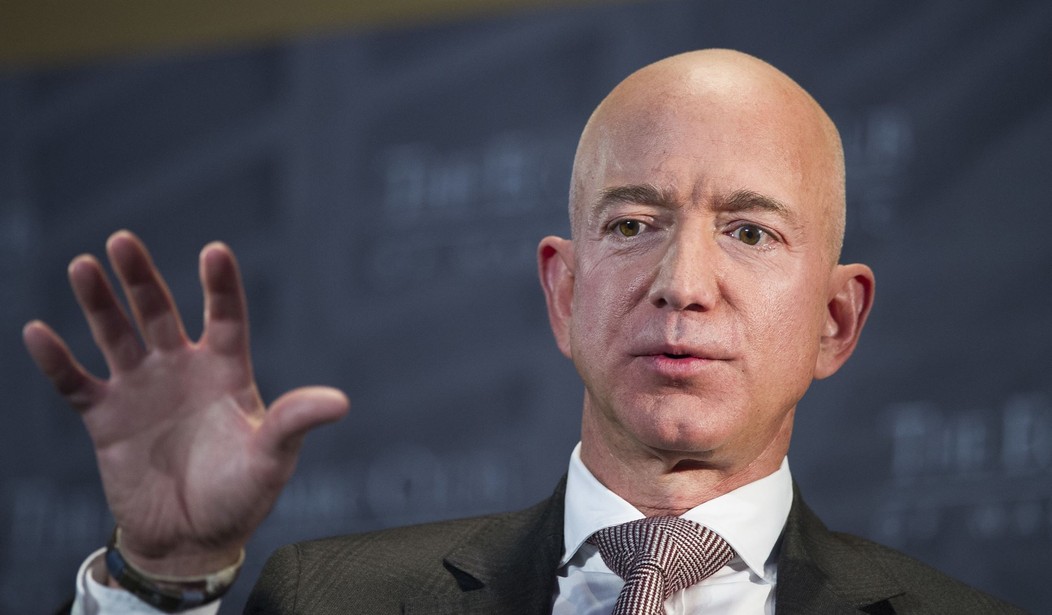Major League Baseball shocked Americans by pulling the All-Star Game out of Atlanta over an election integrity law. Companies like Disney and Coke subject employees to trainings about being “less white.” While some of us have been warning about the nefarious impact of leftist groups like the Southern Poverty Law Center (SPLC) in corporate America, a recent book exposes the roots and the threat of woke capitalism, tracing back decades. The problem is far worse than it first appears.
In The Dictatorship of Woke Capital: How Political Correctness Captured Big Business, Stephen R. Soukup traces how the Progressive bureaucracy of Woodrow Wilson enabled the Marxist corruption of big business in the name of tracking a company according to “environmental, social, and governance” (ESG) metrics, prioritizing “stakeholders” over shareholders.
Soukup traces how Progressive ideas about perfecting bureaucracy infected business and the financial industry. He also traces the development of Marxist critical theory through the Frankfurt School to Columbia University. As Marxism marched through academia and other institutions, it also infected the bureaucracy of big business, including the financial institutions that manage investment.
The “woke” excesses of MLB, Coke, and Disney trace back to investment institutions known as proxy advisory services, which go between investors and companies, using an ESG lens to direct investors’ cash to companies that implement a leftist agenda. Institutional Shareholder Services (ISS) and Glass Lewis — two companies most Americans have never heard of — account for 97 percent of the proxy advisory business, and they carry tremendous weight in corporate America.
Soukup’s book explains the deep historical roots of woke capitalism, and why conservatives have their work cut out for them when it comes to getting a word in edgewise. His book lays out the “players” on both the Left and the Right. While it takes about 40 pages for Soukup to list the players on the Left, only 9 pages exhaust the list of players on the Right who aim to combat the problem.
Soukup paints a sobering picture of the true threat of woke capitalism, and he also provides a very accessible overview of both the impact of Progressivism and the roots of critical theory. He also presents a very important point: pension plans that heavily invest in ESG often suffer subpar returns on their investments. In a 2018 study, American Enterprise Institute (AEI) scholar Mark Perry concluded that “the 12 worst-performing private equity funds in the New York City retirement system in 2016 focused on renewable and clean energy assets.”
The ESG movement is not focused on securing the best returns for investors, so there is ample room for competition. The forces pushing woke capitalism believe that returns for “stakeholders” i.e. more ideologically defined benefits for society should outweigh the more “crass” focus on returns for shareholders who actually invest in a company. Yet capitalism rewards shareholders without harming stakeholders. In a truly free-market system, the best companies that provide the best goods and services will also provide the best return on investment for their shareholders — a win-win. Too often, however, anti-capitalists in the corporate sphere see an unnecessary conflict between stakeholders and shareholders.
Early on in the book, Soukup quotes Sen. Tom Cotton (R-Ark.), who noted that “as liberal activists have lost control of the judiciary, they have turned to a different hub of power to impose their views on the rest of the country,” namely woke capitalism. “He was right, of course… But he didn’t know the half of it.”
Recommended: Conservatives Mobilize to Break the Stranglehold of Woke Capital
Soukup’s book is an excellent attempt to unveil the true threat of woke capitalism, from its historical roots to its broad impact on corporate America today. Conservatives cannot afford to ignore it.









Join the conversation as a VIP Member